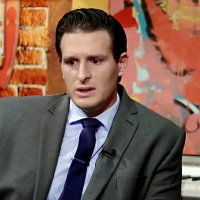 Callahan RICO Act Lawyers, Florida
Callahan RICO Act Lawyers, Florida
Sponsored Law Firm
-
 x
x

Click For More Info:
-
The Law Offices of Richard L. Cooper, P.A.
848 Brickell Avenue Suite 800 Miami, FL 33131» view mapDWI/DUI, Drug Trafficking, Felony Nationally Ranked Top 40 Under 40
With Richard L. Cooper you can expect a trusted confidant who will work diligently to fully understand your case and determine a road map to help you regain control of your life.
800-756-2781
Not enough matches for Callahan RICO Act lawyer.
Below are all Callahan Criminal lawyers.
Sponsored Lawyers
1-10 of 45 matches
Criminal, DUI-DWI, Motor Vehicle, Accident & Injury, Consumer Protection
Michael is a dedicated Jacksonville Criminal Defense Attorney and Florida DUI Attorney who approaches every case with the utmost skill and effort. Michael is exceptionally skilled in the areas of criminal and traffic matters. Since founding Rainka Law, Michael has focused his practice solely on criminal defense and consumer protection, most specifically DUI defense and violations of consumer protection laws.
(more)Felony, DUI-DWI, Misdemeanor, Traffic
If you or a loved one has been arrested, or is being investigated for a criminal charge, having a lawyer represent you AS SOON AS POSSIBLE is one of the most important things you can do to help. I am Bryan Neal and I am your Jacksonville Criminal lawyer. If you have been arrested, I can represent them at "First Appearance" court, and ask for an AFFORDABLE BOND or an ROR (NO MONEY RELEASE) so that the person arrested can go about their regular life such as school, work and family while I work out the charges. will speak with the PROSECUTOR and ask that the case be placed in a "PTI"( Pre-Trial Intervention) program, which if successfully completed will result in NO CHARGES BEING FILED. I can also ask that a felony case be "dropped down" to a misdemeanor, where there would be NO RISK OF A FELONY CONVICTION. As your criminal lawyer I may ask that you receive treatment for problems with drugs or alcohol INSTEAD OF SERVING A JAIL OR PRISON SENTENCE. There are LOTS OF OPTIONS for people who are arrested besides a JAIL OR PRISON SENTENCE. As your criminal lawyer I will help you get the BEST POSSIBLE OUTCOME. If a person is UNDER INVESTIGATION or has a WARRANT for their arrest, I will speak with the POLICE and the STATE ATTORNEY, so you don't have to ! IT IS IMPORTANT when you hire a CRIMINAL LAWYER that they are familiar with the people making decisions and have COURTROOM EXPERIENCE.
(more)Divorce & Family Law, Criminal
Joseph Gasparro has experience with family, criminal, business, and estate law. He owns his own law practice in Jacksonville, Florida. He graduated with his Juris Doctor and honors from Florida Coastal Law School in 2015. He offers an initial free consultation, and promises a response by the end of the day.
(more)




 Richard L. Cooper Miami, FL
Richard L. Cooper Miami, FL AboutMiami Attorney at Law
AboutMiami Attorney at Law ServicesCriminal Defense
ServicesCriminal Defense



